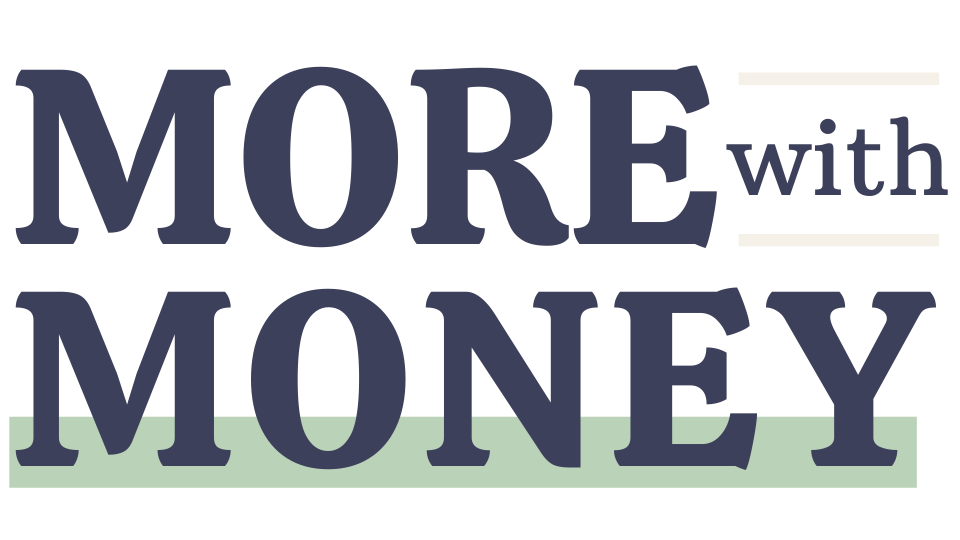How to Make Money More Meaningfully (Even Without "Doing What You Love")
Entrepreneurs are used to talking about how to make money, but when's the last time you paused to think about how you can make money in a more meaningful way? I believe this is the secret to making more money over the long term in your life and business!
What Does It Mean to "Make Money Meaningfully"?
First, let me back up and ask you a question:
Where do we draw the line between a desire to earn money and greed?
I believe that the answer lies in the heart behind the money. You see, money is a neutral resource, a tool that we can use that is neither good nor bad in and of itself.
But the way that you use money reflects your heart; that is, your values and your priorities.
Similarly, the way you make money can be a reflection of your heart, as well.
Now, I’m not talking about whether or not you earn an honest living vs. dirty money. But rather, do you find meaning in the way that you make money? Do you feel in alignment with your values in the way that you work?
This might sound like some sort of idealistic fantasy, but today I’d like to present the idea that making money in a meaningful way will help you to make more of it.
What meaningful money is really about…
To me, making money meaningfully means being intentional about how you make it and how much you earn. (I discuss how we can take back control of our income stories and take a more proactive approach to how much money you earn in this post here.)
This does NOT mean that you have to have some sort of world-saving noble mission to generate income. What is meaningful to you is subjective and completely personal.
I’d like to use myself and my husband as an example.
I find meaning in WHAT work I do - if I don’t see a strong enough connection between what I’m doing and how I want to help someone, I have no motivation to do it. This is why bookkeeping didn’t work out for me. As important as I know bookkeeping and taxes are, I felt better equipped to pursue a more proactive side of helping people with their finances (i.e. budgeting).
As soon as after-the-fact reporting lost meaning to me, I struggled to want to do that work. (Note: This is my personal experience with accounting and is not a statement against other accountants who love what they do!)
My husband, on the other hand, works in grocery store management. On paper, he’ll tell you that his job is to stack fruit and make sure his team stacks fruit well, too. 😂 And while some might say that his job isn’t meaningful in the sense that he and his fruit won’t be saving the world one day, he finds meaning in the WAY that he works.
For him, it’s about the quality he puts out, the efficiency of his department, the culture of his team, and the character values he lives out as a leader. As long as he has those things, he feels fulfilled in his role and is proud to earn his paycheck.
You might find meaning in your work in even different ways.
But I firmly believe that when you can learn to make money meaningfully, you will make more of it. Because when you’re in alignment with your gifts and your passions, you thrive. You will have more energy and more joy, and you will become really good at what you do.
BUT… Don’t Just ”Do What You Love”
All of this is well and good, but we do have to draw a line somewhere. You’ve probably heard the saying, “Do what you love and you’ll never work a day in your life.”
Despite everything that I’ve just said…I still think this statement is kind of bogus. Let’s talk about it.
Firstly, “doing what you love” isn’t the goal…
I have two things to say on this. First, sometimes that thing you love doing is best kept as something that’s purely for fun.
As an entrepreneur, you might need to hear this: You don’t have to monetize everything that you enjoy.
You’ve probably seen so many fall into this trap (or been one yourself, like me!): Starting a half-dozen different businesses, constantly pivoting between passions, or creating confusing business models that try to solve 100 unrelated problems.
But it’s okay to keep something you’re passionate about as just that - a passion. A hobby. Something that allows you to decompress or recharge.
Secondly, being passionate about something isn’t enough for it to be a viable profession. Your passions need to also be in alignment with your skills and experiences.
I love drawing, but that doesn’t mean I’m skilled enough to get paid to do it or qualified enough to teach someone else!
One framework for finding your purpose is the Andres Zuzunaga Venn Diagram of Purpose (often mistakenly associated with the Japanese concept of Ikigai) which represents purpose as the intersection between your passion, profession, vocation, and mission.
To take that a step further, it’s the intersection between what you’re good at, what you can be paid for, what the world needs, and what you love.
Theoretically, this is how you can find a sense of purpose in the WORK that you do.
Zuzunaga, Andres. Proposito. 2011, https://www.cosmograma.com/proposito.php
All that said, I don’t personally prefer to boil down something as complex as purpose to just a simple framework like this. However, I think it’s a solid starting point for someone exploring this for themselves for the first time.
Just know that purpose is often more layered and nuanced than this, and it’s a lifelong journey of pursuit. (Also, it’s always worth considering that God often calls us to a purpose that we will develop a passion or skillset for after taking action in faith.)
Secondly, “never working” isn’t the goal either!
Again, I have two thoughts on this. First of all, I think “do what you love and you’ll never work a day in your life” is simply not true.
I love what I do here at More With Money, but it still feels like work (and I do get burnt out). I love the work as I do as an Instructional Designer in my day job, but it still feels like work (and I have long evening work rants like any other employee). Even my hobbies can feel like a lot of work depending on what I’m trying to do or create!
To circle back to our earlier discussion about how you don’t have to monetize everything you enjoy - many, many people will tell you that turning their hobby into a profession sucked the joy out of their favorite activity. So yes, doing what you love can feel like work, still.
“…the solution to soul-crushing work is not likely to be found in monetising our passions, but in seeking out “good-enough” work that is well-suited to our skills and personalities.” - Johanna Leggatt, “Your job doesn’t have to be your passion. Good enough is OK”
The second address I have for the idea of “never working” is this: There’s nothing wrong with work.
“Work” is NOT the opposite of “passion.”
We are called to work because anything worth achieving is on the other side of hard work. It’s what gives it meaning in the first place! Are you picking up on the cycle here? We find meaning in our work because the work we do gives us meaning.
Sometimes, work is hard. Sometimes it’s bitter. Sometimes it’s downright infuriating. That doesn’t mean you lose a sense of meaning in what you do. Sometimes, the meaning is what makes it possible to endure the inevitable hard days.
This doesn’t mean putting up with a toxic work environment. But it does mean that “hard work” isn’t necessarily a bad thing.
I’m going to ruffle some feathers for a moment here (if I haven’t already done so)…
A lot of affirmations out there express a desire to receive something “with ease.” The idea is that we don’t want to make things harder than they have to be, or that we want money or success to flow more easily to us without as much opposition. I get it.
But I think that this can wrongly cultivate an expectation that if something DOES prove challenging, we’re somehow doing it wrong or we’re pursuing the wrong thing. This creates a culture of pivoting and quitting instead of fighting for a goal or dream.
Sometimes, obstacles can be a sign that you’re headed the wrong way. However, that’s not always the case. The wall doesn’t always mean you’re not allowed through; sometimes it’s a sign that what’s on the other side is worth cherishing.
How to Make Money Meaningfully
Start pursuing your purpose, one baby step at a time. (Remember, this is a lifelong journey, and your “purpose” today may not be the same as your purpose tomorrow!)
It begins with awareness. You start paying attention to your passions and proficiencies, as well as the opportunities that are right in front of you based on your current circumstances.
You evaluate your values and be honest with yourself about how you want to live, work, and run your business.
Be honest with yourself about where you want to be 5, 10, 20, or 30 years from now.
Over time as you continue to take aligned action, the way will become clearer and clearer to you!
This post has largely been a commentary on this concept of work, but I also encourage you to discuss it with me in the comments below.
Are you ready to take your financial journey to the next level? Then you may be ready to check out the More With Money Academy!
This ever-growing collection of online courses and trainings are specially designed to support entrepreneurs like you on your path to financial wellness. The Academy contains carefully designed courses that are easy to understand and implement so that you can be empowered with the practical concepts, streamlined systems, and powerful mindset to transform your business and personal finances.
Click here to explore what the More With Money Academy has to offer!
Pin for later
I'd love to continue the conversation in the comments! Feel free to share your thoughts.
Until next time!







